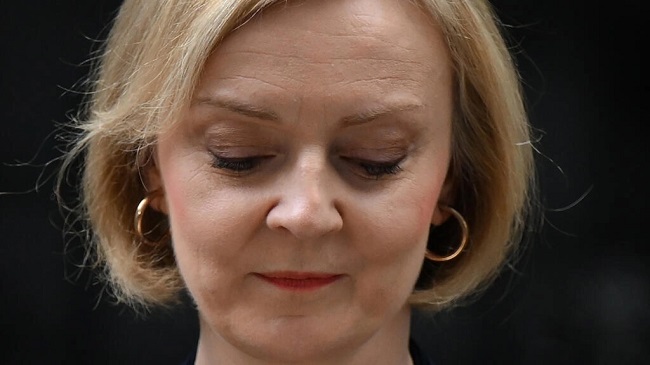British Politics: Shortest-serving Prime Minister in history leaves scars on economy
Truss’ attempt to boost growth in a recession-threatened economy was fuelled by eye-watering levels of debt, damaging her government’s credibility on financial marketsLiz Truss, the shortest serving prime minister in UK history, leaves lasting scars on the economy after her botched budget rocked markets, spiked borrowing costs and tanked the pound.
The crisis-hit PM, elected Conservative leader just six weeks ago on a tax-slashing platform, announced her resignation Thursday.
Her budget, peppered with tax cuts and delivered last month, sought to boost growth in Britain’s recession-threatened economy and freeze energy prices to ease a cost of living crisis.
However, the costly measures were fuelled by eye-watering levels of debt that damaged the government’s credibility on public finances and sent bond yields and mortgage rates soaring.
Truss gamble backfires
“The great political gamble of Liz Truss has spectacularly backfired but not before wreaking significant damage to the UK economy,” remarked Susannah Streeter, analyst at stockbroker Hargreaves Lansdown.
“It will take considerable time before the risk premium attached to UK assets fades away, following the financial nervous breakdown which followed the mini-budget.”
The measures triggered a loss of confidence on markets, ultimately sparking the downfall of the 47-year-old Oxford-born politician.
Investors also felt the budget splurge was in opposition to the Bank of England’s recent interest rate hikes which sought to bring down runaway inflation.
“The politics of recent weeks have undermined the confidence of people, businesses, markets and global investors in Britain. That must now come to an end if we are to avoid yet more harm to households and firms,” said Tony Danker, head of the CBI business lobby.
Markets meanwhile a breathed sigh of relief after Truss’ resignation. Sterling advanced beyond $1.13 in afternoon deals, while the government’s 30-year bond yield declined to 3.94 percent.
It had surged to more than 5.0 percent, or the highest level in two decades, in the aftermath of the budget.
Nail in coffin
Truss faced a final humiliation late Wednesday when a parliament vote on banning fracking descended into mayhem, delivering the final nail in the coffin of her premiership.
Her departure comes amid Britain’s intensifying cost-of-living crisis with inflation currently running at a 40-year high, fuelled by rampant food prices and soaring fuel bills.
Markets turmoil only subsided this month after the BoE launched an emergency intervention to purchase long-dated state bonds and avert a worsening financial catastrophe.
The BoE acted on concerns over pension funds which are obliged to invest in low-volatility assets like long-term government bonds, or gilts.
Sentiment was further soothed when Truss sacked close ally Kwasi Kwarteng as finance minister and replaced him with Jeremy Hunt.
Hunt, a former backer of Truss’ leadership rival and ex-finance chief Rishi Sunak, then shredded much of the budget earlier this week.
Truss was forced to end her flagship energy price freeze in April instead of late 2024.
‘Stability is key’
All eyes will now be on the leadership election of the governing Conservative Party to crown the next prime minister.
“Stability is key. The next Prime Minister will need to act to restore confidence from day one,” added Danker.
The UK is still scheduled to unveil its medium-term fiscal plan on Halloween, or October 31, alongside independent economic forecasts from the Office for Budget Responsiblity.
And the Bank of England is then widely forecast on November 3 to ramp up interest rates by a significant amount.
The bank has already hiked its key rate to a 14-year high of 2.25 percent, in turn lifting loan repayments for consumers and businesses.
Source: AFP





